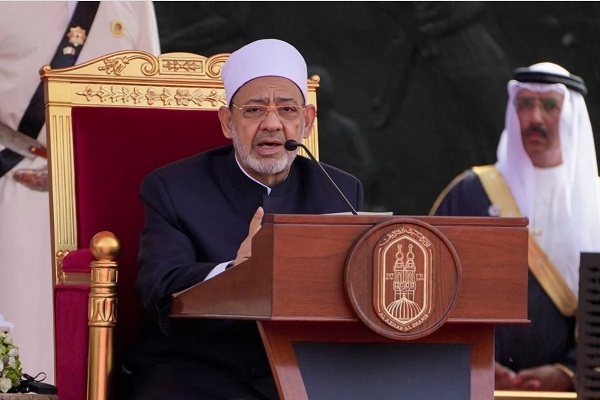The Grand Imam of Al-Azhar, one of the leading figures in Sunni Islam, plays a crucial role in the intellectual and spiritual life of the Muslim community. As the head of the prestigious Al-Azhar University in Cairo, he embodies a profound tradition of scholarship that has shaped Islamic thought for over a millennium. For Christians and scholars of other faiths, understanding the significance of the Grand Imam offers valuable insights into how religious leaders can serve as bridges for dialogue and coexistence among different faith communities.
The position of Grand Imam is not merely a title; it carries with it an immense responsibility. The Grand Imam is a custodian of Islamic scholarship and a communicator of core theological principles. This role is vital in the global landscape, where inter-religious dialogue is becoming increasingly necessary in the face of sectarian tensions and conflicts. The Grand Imam’s recent calls for Sunni-Shia dialogue underscore his commitment to fostering understanding within the Muslim Ummah, as well as promoting unity among diverse sects.
Central to the Grand Imam’s vision is the concept of Islamic unity. This pursuit resonates across religious boundaries, as communities today face the challenges of misunderstanding and polarization. In his speeches and writings, the Grand Imam emphasizes the need for dialogue, education, and mutual respect—values that have the potential to transcend religious differences. For Christians, this message echoes the teachings of Jesus on love, compassion, and reconciliation, underscoring a commonality in the quest for understanding and unity among faiths.
The Grand Imam’s commitment to interfaith dialogue is not a new phenomenon. Al-Azhar has historically been a center for such discussions, hosting numerous conferences and initiatives aimed at bringing together leaders and scholars from various religions. Through these forums, the Grand Imam champions a paradigm of peaceful coexistence, wherein shared values and mutual respect can flourish. In a world grappling with extremism and intolerance, these dialogues serve as a vital counter-narrative, advocating for a vision based on commonality rather than division.
In addition to facilitating dialogue, the Grand Imam also emphasizes educational reform within Islamic institutions. He argues that through education, misconceptions about different sects can be addressed, allowing for a more informed dialogue among various communities. This approach is particularly significant for Christians, as it highlights the importance of education and understanding in alleviating fears and preconceived notions about other faiths. By fostering critical thinking and promoting religious literacy, the Grand Imam’s initiatives can help build a more nuanced understanding of both Islam and Christianity.
Moreover, the Grand Imam’s proactive stance on social issues further enhances his role as a pillar of scholarship and global dialogue. He addresses contemporary challenges such as poverty, extremism, and human rights, advocating for a holistic approach that combines religious teachings with social responsibility. For Christians, this emphasis on ethical living and community service resonates deeply, as it parallels the Christian call to be stewards of justice and compassion in the world.
Furthermore, the Grand Imam’s international engagements illustrate his role as a significant religious leader on the global stage. By participating in global interfaith gatherings, he brings forth an Islamic perspective that encourages principles of tolerance and understanding, promoting peace in societies rife with conflict. These global dialogues foster an environment where Christians and Muslims can collaboratively work towards common goals, such as social justice, environmental stewardship, and economic development.
The Grand Imam also makes noteworthy contributions to discussions about freedom of belief and the rights of religious minorities, echoing concerns that are particularly relevant in many Christian-majority societies. His advocacy for the rights of all individuals to practice their faith without fear serves as an important reminder of the shared struggles faced by various religious groups. In a world where persecution based on religion remains a pressing issue, this shared commitment to freedom of conscience can pave the way for cooperative action between Christians and Muslims.
On a theological level, the Grand Imam’s discussions frequently intersect with essential Christian doctrines. Issues such as the nature of God, the importance of ethical conduct, and the concept of the afterlife reveal common threads between Islam and Christianity. In exploring these themes during interfaith conferences, both Muslims and Christians can deepen their understanding of one another’s beliefs, fostering a respect that transcends theological differences.
The Grand Imam’s influence extends beyond the Islamic world, affecting how Christianity is perceived and engaged with in various contexts. His efforts to bridge gaps and build understanding provide a model for how religious leaders can confront isolationism and fear with education and respect. Facilitating such conversations can engender a more nuanced portrayal of faith, one that resists stereotypes and fosters genuine relationships among different communities.
As the Grand Imam of Al-Azhar continues to navigate the challenging waters of 21st-century religious discourse, his contributions remain vital for both Muslim and Christian scholars alike. In an era marked by a longing for peace and understanding, his tireless advocacy for dialogue and educational reform presents a framework through which diverse faiths can engage as fellow travelers on a shared journey toward unity and coexistence.
Thus, the Grand Imam is not merely a figure of Islamic authority; he stands as a beacon for interfaith dialogue, encouraging a world in which respect, understanding, and love prevail over division and animosity. For people of all faiths, his leadership is a clarion call to embrace the richness of diversity while striving for a harmonious existence in a complex and often divided world.



